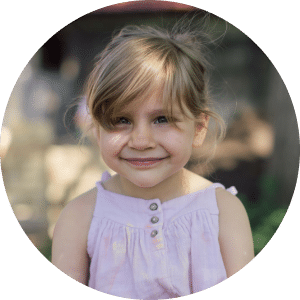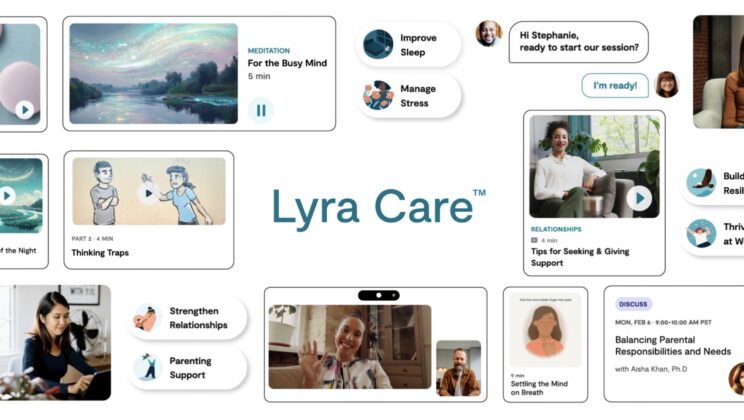Introducing Lyra’s Center of Excellence for Neurodiversity
June 12, 2025
Over a billion people have neurodivergent conditions like ADHD, autism, and dyslexia. Yet support is still falling short, leaving families, caregivers, and workforces stretched, overwhelmed, and searching for answers.
- Caregivers need more than support—they need answers. Families need faster evaluations and expert guidance to understand what their child needs and what to do next.
- Neurodivergent adults need real support—quick answers, personalized care, accommodations, and practical tools to succeed at work, in relationships, and in life.
- And managers need training that goes beyond awareness, so they can unlock the unique strengths of neurodivergent employees and build teams that truly thrive.
Too often, care is fragmented. Diagnoses are delayed. And treatment goals are to “fix” rather than understand.
That’s why we built something better.
The future of neurodivergent care
Lyra’s Center of Excellence (COE) for Neurodiversity sets a new standard in mental health care for children, adults, and workplaces navigating autism, ADHD, and more.
This model builds on the strong foundation of neurodiversity support Lyra already offers, enhancing it with even deeper specialization, seamless coordination, and expanded resources for individuals and organizations.
Led by clinical experts, our care addresses the full picture of mental health, neurodevelopment, and everyday life.
This isn’t one-size-fits-all care. It’s personalized, evidence-based support for every step of the journey.
Helping kids thrive. Supporting caregivers.
Lyra makes it faster and easier for families to get high-quality care for children with neurodiverse needs. We start with streamlined access to in-house neuropsychological evaluations for autism, ADHD, and other conditions—available nationwide through our network of expert clinicians.
But support doesn’t stop at diagnosis. Lyra is the only offering that pairs families with an on-staff, dedicated board-certified behavior analyst (BCBA) who provides caregiver coaching. From concrete parenting strategies to school advocacy to trusted ABA referrals, and alternative, evidence-based modalities for autism, families get expert guidance, emotional support, and practical tools—not just in moments of crisis, but in everyday challenges.
The result: shorter wait times, more robust outcomes, and support that lifts up the whole family.

Meet Maya
Lyra care for children
At four, Maya was struggling with intense sensory sensitivities and communication challenges. Her parents were overwhelmed, stuck on year-long waitlists, and unsure how to help.
Through Lyra, Maya quickly received an in-house neuropsychological evaluation and a clear autism diagnosis. From there, her dedicated BCBA supported her parents with practical strategies and emotional guidance—building confidence day by day.
Between coaching sessions, Lyra’s digital tools kept support going, while advocacy experts helped secure school accommodations and access to essential resources.
Now, with trusted referrals and a compassionate team beside them, Maya’s family no longer feels lost. They feel seen, supported, and hopeful—and they’re watching Myra shine.
Clarity for adults. Tools for real life.
For adults navigating ADHD and other neurodiverse conditions, getting care is often slow, confusing, and expensive.
Lyra now offers virtual neuropsychological evaluations for adults, making it easier for employees to get fast, accurate diagnoses. Once diagnosed, they’re connected to expert prescribers for personalized medication management, including both stimulant and non-stimulant options. With many years of experience monitoring symptoms and side effects, our team helps employees find relief faster—and with fewer setbacks.
Medication is just one piece. We also offer evidence-based therapy that builds executive function, emotional regulation, and daily life skills. Combined with on-demand digital tools, live workshops, and inclusive peer groups, employees gain real-world strategies to boost confidence, focus, and resilience.

Meet Alex
Lyra care for adults
As a retail associate, Alex was constantly overwhelmed—struggling to manage distractions, juggle tasks, and keep up with the fast pace of the store. Behind his smile was anxiety, exhaustion, and a fear of asking for help.
Through Lyra, Alex quickly received an in-house ADHD diagnosis, along with personalized therapy and expert medication management.
One-on-one coaching gave him practical tools to manage stress, stay organized, and navigate busy shifts. Peer support groups helped him feel less alone, while guidance on workplace communication empowered him to advocate for what he needed.
Now, Alex isn’t just getting by—he’s thriving.
Real workplace support. Thriving teams.
True inclusion means supporting neurodivergent employees as well as the managers, teams, and systems around them.
Lyra helps companies create environments where employees with neurodiverse minds don’t just survive, they thrive, and their neurodiversity is celebrated. Through one-on-one manager consultations and clinician-led workshops, leaders build empathy, navigate accommodations, and learn to lead with confidence and compassion.
HR and benefits teams get tailored training on stigma reduction, psychological safety, and inclusive policies.
To reinforce learning, we offer on-demand tools, peer discussion groups, and ERG resources that embed inclusion into everyday practice.
Our approach addresses real workplace challenges—from communication differences to executive functioning needs—while reducing burnout, turnover, and friction across teams.

Meet Mia
Lyra care for workplaces
As a manager with two team members with neurodivergent needs, Mia wanted to do the right thing—but wasn’t always sure how. She worried about adding pressure, missing signs of struggle, or not offering the right support.
Through Lyra, Mia accessed one-on-one consultations with expert clinicians who helped her lead with both empathy and strategy. Clinician-led workshops gave her the tools to implement accommodations, reduce stigma, and foster psychological safety.
With digital tools and practical resources at her fingertips, Mia evolved her leadership style and created a culture where every team member feels seen, supported, empowered, and their unique needs are celebrated.
Build a workplace where every mind is supported
Lyra delivers specialized care for neurodivergent kids, adults, families, and teams, helping organizations foster inclusion, reduce friction, and unlock potential. Together, we can create a future where all employees feel seen, supported, and empowered to thrive.
Champion neurodiversity in the workplace
Lyra can help
Author
Smita Das, MD, PhD, MPH
VP of Psychiatry & Complex Care at Lyra Health
Dr. Das is board certified in psychiatry, addiction psychiatry, and addiction medicine and has over 20 years of research experience. She completed her master’s degree at Dartmouth College and her MD/PhD at the University of Illinois at Urbana Champaign. She’s a past president of the Northern California Psychiatric Society and the American Psychiatric Association District Branch, and a clinical associate professor at Stanford School of Medicine. She also serves on the Council on Addictions at the American Psychiatric Association and has presented to the US Congress on the importance of access to care for substance use disorders.
Explore additional blogs

Lyra news
Announcing Lyra’s 2025 Workforce Mental Health Award Winners

Lyra news
Build a Resilient Workforce With Mental Health Coaching

Lyra news